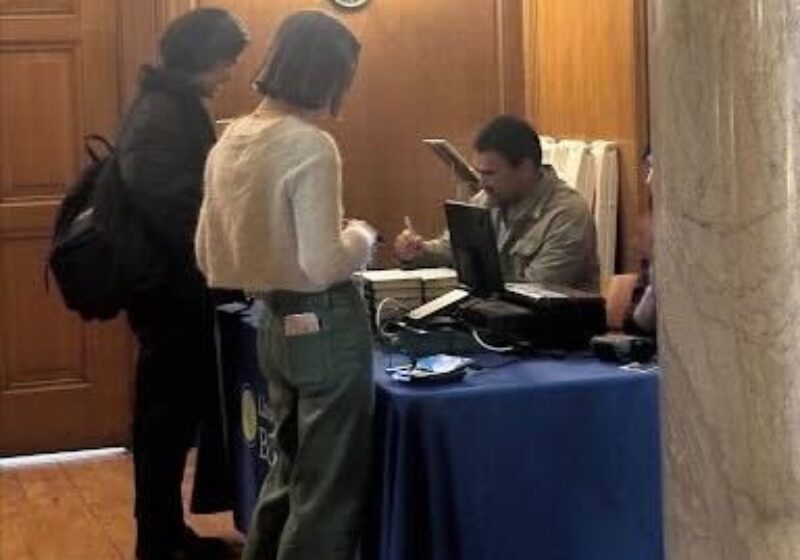“This thing that almost never was still beckons […] They can never undo it, never unwrite it, never unlive it or relive it—it’s just stuck there like a vision of fireflies on a summer field toward evening that keeps saying, ‘You could have had this instead.’”
-André Aciman, “Call Me by Your Name”
“La La Land” is in love.
It’s in love with the past: Damien Chazelle’s third feature pays tribute to film history in both its aesthetics—the opening frame proudly announces the film was shot in Technicolor; the costumes and production design recall the “Golden Age of Hollywood”—and in its narrative and thematic choices.
The film’s leads—pianist Sebastian (Ryan Gosling), a jazz purist, and actress, barista, and nostalgic playwright Mia (Emma Stone)—are both old souls whose interests and affinities reach for times gone by.
It’s in love with the present: Sebastian’s colleague Keith (John Legend) argues that the man’s rampant traditionalism is what’s destroying jazz and presents a modern counterpoint on the evolution of art that’s more conducive to the future success of the genre.
And while the film initially seems formulaic (boy meets girl, boy loses girl, boy wins girl back), “La La Land” adds a modern twist that should melt even the coldest hearts.
It’s in love with (jazz) music: Sebastian dreams of opening a jazz club. The film features an intoxicating jazz score and musical numbers that understand the power of music to express what words alone cannot. The climactic song “Audition,” in which a spoken story Mia tells of her aunt’s life as an actress, slowly becomes an impassioned, almost desperate, ode to “the ones who dream,” is one of the greatest expressions of the joys and hardships of ambition I’ve ever seen.
It’s in love with, well, love: “La La Land” is one of those old-fashioned movies in which the power of love can seemingly bend the fabric of space and time. When Sebastian and Mia drive to the famed Griffith Observatory, not only do they easily break in, they literally float into space, where the two share a dance in the stars.
But maybe love can’t fix everything. Maybe some dreams aren’t achievable.
“La La Land” isn’t naïve about its objects of love. This is a Los Angeles in which the projector in a classic, under-attended movie theater breaks down during a screening of “Rebel Without a Cause,” and the entire theater is boarded up soon after. This is a Los Angeles where a jazz club is replaced by a Samba-Tapas restaurant (“So the joke’s on…history?”). This “City of Stars,” as Ryan Gosling’s character says, “worships everything, but values nothing.”
The understanding extends elsewhere: “La La Land” knows that a relationship or a career requires more than love and passion to succeed. Life is full of choices, and while some decisions will bring both people and their dreams closer together, others will tear them apart.
This isn’t even to mention the technical prowess of the film: the way that Linus Sandgren’s camera bathes Stone’s face in red light for much of the film, before switching to a blue in the melancholy passages; or how the long takes are cut so elegantly by Tom Cross (who won an Oscar for the furious editing of Chazelle’s previous film, “Whiplash”); or the way that Stone’s imperfect singing voice cracks with emotion toward the close of her final number.
And if the brilliant final reel—a wordless, creative showstopper demonstrating the benefits and limitations of nostalgia—ultimately finds a bittersweet longing for the roads not taken, it’s mature enough to also convey a satisfaction in the choices made in their stead.
While the film could stand to lose five to ten minutes in the middle, “La La Land” is honestly magical. It’s funny and entertaining and heartbreaking and hopeful, and there exists a version of the film that might fix all of its flaws, but I might still rather have this one instead.



